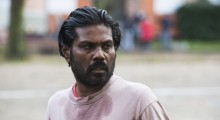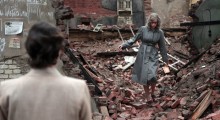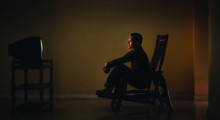Summer 2015
-
Dispatches from Cannes and the Los Angeles Film Festival

Cannes by Aaron Hillis The same way New Yorkers love to bitch about living in what they also proclaim to be the world’s greatest city, the Cannes-accredited can spend nearly two weeks in the south of France watching nothing but prestigiously vetted films and have the nerve to call it a “so-so year.” But if that was a too-common sigh, it’s partly because the festival’s main competition had few unanimous hits, which is neither unusual nor taking stock of the parallel pleasures within the Un Certain Regard, Directors’ Fortnight and Critics’ Week sections, or out-of-competition premieres of innovative multiplex fare […]
by Filmmaker Staff on Jul 23, 2015 -
Theatrical 2.0

Releasing movies in U.S. theaters isn’t going away anytime soon. But indie film distribution is experiencing a significant tipping of the scales. While theatrical distribution has always been an advertisement for foreign sales and ancillary platforms, like VHS and then DVD, a new wave of film companies are shifting the balance even further, where theatrical distribution is a means to a digital end. As Vincent Scordino, senior vice president of marketing at rising distributor Alchemy says, “Ancillary platforms have always been important to a film’s profitability, but now we’re talking about them more with the rise of iTunes and the […]
by Anthony Kaufman on Jul 23, 2015 -
Survivor’s Song: Christian Petzold on Phoenix

The more you consider the nuances of German filmmaker Christian Petzold’s latest feature, Phoenix, the more difficult it is to articulate exactly what this mysterious and allusive drama is really about. It’s the director’s seventh feature for cinema (discounting the five he has made for television), and the fifth he has made in collaboration with actress and avowed muse Nina Hoss. While not quite stripped down to Bressonian levels of formal curtness, Petzold’s style is without fuss. As he explains below, his mode of storytelling is generally more reflective and assiduously built through alternating perspectives than it is literal or […]
by David Jenkins on Jul 23, 2015 -
Creeping Time

There is nothing new about Slow Cinema. From the very beginning of projected motion pictures in the late 19th century, the Lumière brothers utilized the single take, allowing for the temporal flow in the frame to coincide roughly with the audience’s experience of time. The fracturing of time through editing — borrowing from and keeping with the realist conventions of the novel — put cinema on the path of montage: the art of visual storytelling became equated with rapid movement across time (flashbacks and the implied “meanwhile…”) and space (multiple locations). Even cross-cutting — shifting back and forth between two […]
by Nicholas Rombes on Jul 23, 2015 -
Corrective Lens

While promoting The Act Of Killing — his punchy, audacious, madly performative, deeply troubling masterpiece about the legacy of genocide in Indonesia 50 years later — Joshua Oppenheimer didn’t much let on that there was a second, complementary feature in the works. While editing the first film, and before his secondary subjects in the government and paramilitaries knew what a bold, damning document he had fashioned, Oppenheimer shot a round of elegant, formally restrained interviews with his earlier subjects through the offices of his collaborator, Adi Rukun, an optometrist whose older brother had been murdered. Among a range of substantial […]
by Ray Pride on Jul 23, 2015 -
Going Mobile: The Alpha1 Mobile Film Lab

In 1932, the Russian filmmaker Alexander Medvedkin convinced Soviet authorities to give him three decommissioned train carriages to turn into a mobile film studio. The “film-train” would travel across the USSR’s expanse, bringing with it 32 spots to sleep, six editing tables, a projection room and a film-processing lab. Equipped to handle all aspects of production and projection from beginning to end, the film train would record local issues and expose problems that the people would need to solve: in Medvedkin’s words, the portable facility would act as “a kind of special fire brigade to put out problem fires.” These […]
by Vadim Rizov on Jul 23, 2015 -
Shifting the Gaze

Patricia White, a scholar of feminist film and professor in the Film and Media Studies program at Swarthmore College, recently published a book titled Women’s Cinema, World Cinema: Projecting Contemporary Feminisms (Duke University Press, 2015). The book explores the work of women directors globally, arguing that not only are many of these directors shaping a 21st-century arthouse aesthetic, but also that they are transforming film politics and projecting “a transnational feminist social vision.” The book invites us to rethink both women’s cinema and world cinema and uses the notion of projection as a “vision of futurity.” Writing in the introduction, […]
by Holly Willis on Jul 23, 2015
